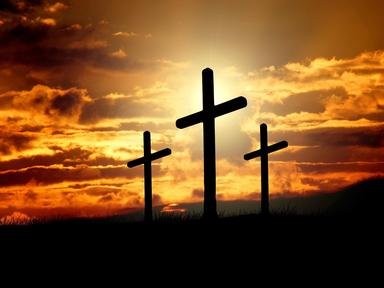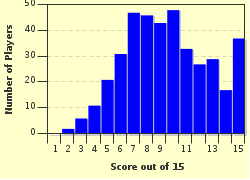Quiz Answer Key and Fun Facts
1. What was Simon's profession when he encountered Jesus for the first time?
2. What was the name of Simon's brother who was fishing with him when Jesus called upon them to leave their work and follow him?
3. What is the Hebrew meaning of the name 'Simon'?
4. What was the name of the servant of the High Priest whose ear Peter chopped off as Jesus was being arrested?
5. According to tradition, when Peter came to be martyred, he requested that he be crucified in the same manner as Jesus in a final act of obedience to God.
6. What was the name of the man who had been bedridden for eight years but was healed by Peter in Lydda?
7. Where is the famous church known as St Peter's basilica situated?
8. Why was Paul overtly critical of Peter when the two of them met in Antioch?
9. What is the Aramaic equivalent of the name Peter? This is arguably the actual name that Christ may have given him.
10. Which of these places is NOT one that Peter stated he was writing to in his 1st letter (ie 1 Peter)?
11. What kind of spirit does Peter teach that wives should have in 1 Peter 3, which is what displays the "unfading beauty" of their "inner self"?
12. True or false - The long list of qualities Peter cites as helping to keep a Christian from "being ineffective and unproductive in your knowledge of our Lord Jesus Christ" is found in 2 Peter.
13. What was the name of the girl who greeted Peter at Mary's house when he miraculously escaped from prison after being arrested by King Herod during the Feast of Unleavened Bread?
14. True or False - As recounted in Acts, Peter's miraculous escape from prison when he had been imprisoned by King Herod was due to an earthquake in the city.
15. When Peter interpreted the words of David in the Psalms that Judas Iscariot, Jesus's betrayer, should be replaced, what was the name of the man who became the 12th disciple in his place?
Source: Author
nathe
This quiz was reviewed by FunTrivia editor
CellarDoor before going online.
Any errors found in FunTrivia content are routinely corrected through our feedback system.

